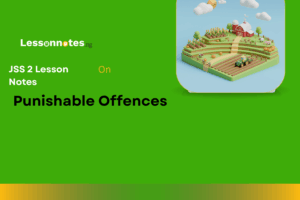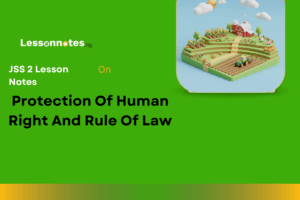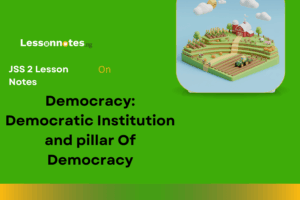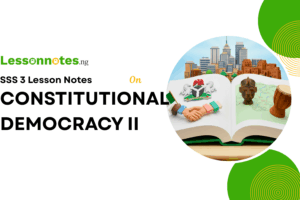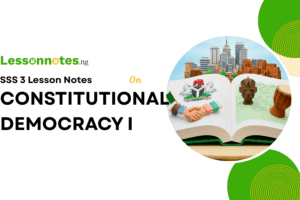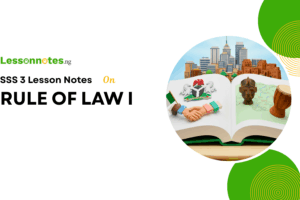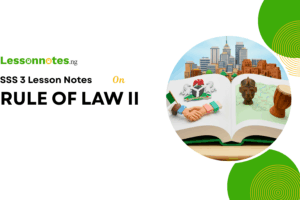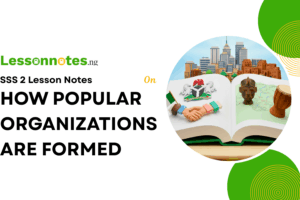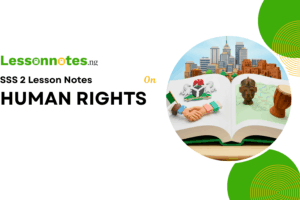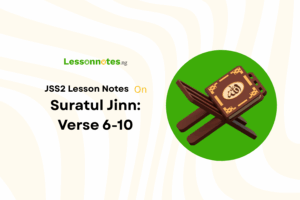Constitutional Democracy III SS3 Civic Education Lesson Note
Download Lesson Note
Lesson Notes
Topic: Constitutional Democracy III
Key Concept in Constitutional Democracy
The following are some of the terms or concepts in Constitutional democracy:
- Election/periodic election
- Electoral system
- Franchise
- Voters/electorates
- Electoral Commission
- Ballot paper
- Political party
- Voters register
- Independent judiciary
- Constitution
- Freedom of the press.
- Rule of law.
- Election/periodic election: Election is the process of choosing a leader by voting which is done periodically based on what is stated in the constitution of the land. The act of voting is carried out by electors who elect their public office holders by casting votes for candidates presented by political parties.
- Electoral system: This has to do with the combination of electoral laws, procedures and institutional framework established by the constitution to guide electorates as they elect their leaders into political/public office.
- Franchise: This is the conferment on the citizens of a State or country to participate in the political process(es) of their State.
- Voters/electorates: These are people who have properly registered to vote during an election.
- Electoral Commission: This is the legal body established and empowered by the constitution to conduct elections in a State or country e.g The Independent National Electoral Commission (INEC) is the electoral body that conducts an election in Nigeria.
- Ballot paper: It is an electoral document, a sheet of paper that contains the names and logos of political parties. Voting is done in front of a political party of one’s choice by thumb printing.
- Political party: A political party is an organised body established to present candidates for elective positions and contest elections to form and manage the state resources.
- Voters register: This is a document containing the names and details of voters or people who are qualified to vote during an election in a polling unit. This voter register is usually updated by the electoral commission to accommodate new qualified voters into the bimodal voters accreditation system (BVAS) in the case of Nigeria.
- Independent judiciary: The judiciary which is the third arm of government that interprets the law and settles disputes should operate autonomously without any form of influence or interference by the other arm of government (executive and legislatures) for the delivery of democracy.
- Constitution: This is the body of law, rules and regulations that guide the governing of a State and defines the rights and duties of both the government and the governed.
- Freedom of the press: The media must be allowed to freely perform their functions and given free and easy access to information without any form of restriction from either the government or groups in a State.
- Rule of law:



